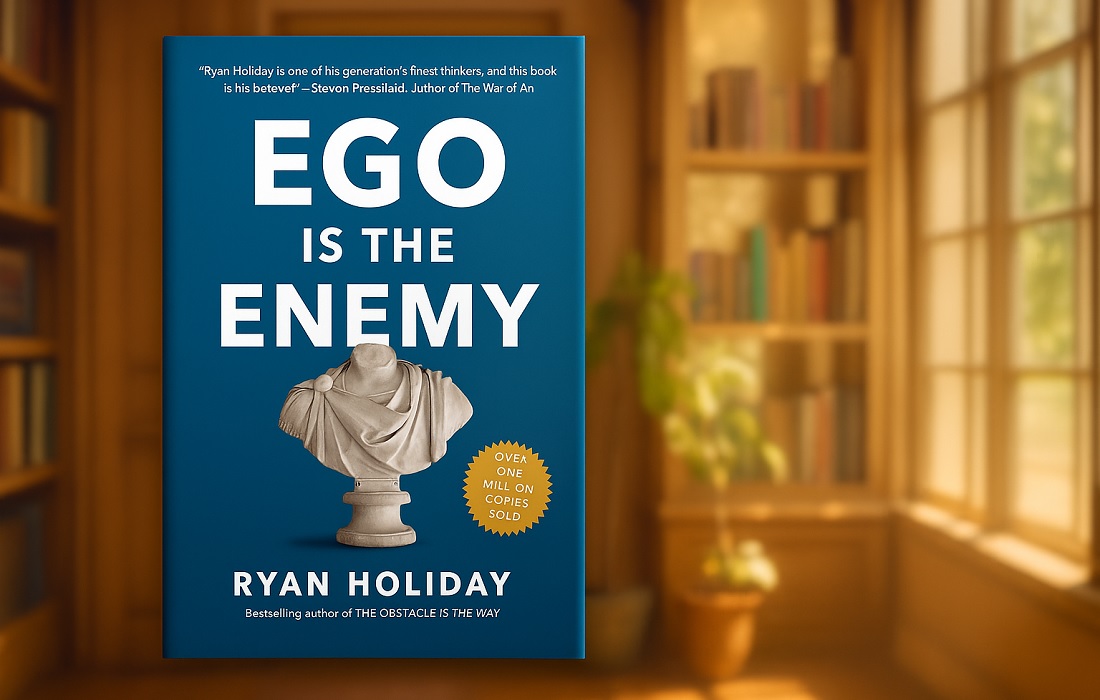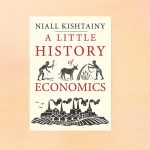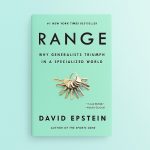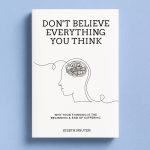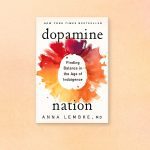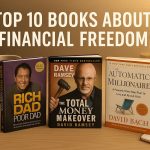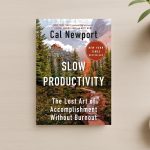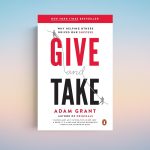Ego Is the Enemy by Ryan Holiday is a masterclass in dismantling the most persistent obstacle to success: ourselves. Drawing on timeless wisdom from Stoic philosophy, history, and modern case studies, Ego Is the Enemy by Ryan Holiday shows how unchecked ego undermines ambition, corrodes achievement, and blocks recovery after failure. Through vivid stories of leaders, creators, and cautionary figures, he lays out practical tools for staying a student, resisting entitlement, and using setbacks as growth fuel. This book is both a wake‑up call and a practical manual for achieving sustainable greatness – not by inflating the self, but by mastering it with humility, discipline, and purpose.
1. Introduction to Ego Is the Enemy by Ryan Holiday
Ego Is the Enemy by Ryan Holiday is urgent call to confront the destructive power of ego in our personal and professional lives. Drawing from philosophy (especially Stoicism), history, sports, military leadership, and modern business, Holiday examines how ego – the unhealthy belief in our own importance – undermines ambition, clouds judgment, erodes humility, and leads to downfall.
Where the popular self‑help narrative often exalts constant confidence and self‑promotion, Holiday challenges that orthodoxy. He argues that sustained success and personal fulfillment depend on controlling ego at every stage of life: Aspire, Success, and Failure. In each phase, ego manifests in different ways – but in all, it remains a silent saboteur.
Ego Is the Enemy by Ryan Holiday is not just a guide to humility or anti‑arrogance; it is an actionable framework for replacing ego with purposeful learning, self‑discipline, and resilience. By weaving historical examples with contemporary case studies and personal anecdotes, Holiday makes a compelling case that mastering ego is not a minor etiquette choice, but an existential skill for enduring achievement.
2. Author Biography: Ryan Holiday
– Full Name: Ryan Holiday
– Born: 1987, Sacramento, California, USA
– Background: Dropped out of college at 19 to apprentice under author Robert Greene (The 48 Laws of Power). Became director of marketing at American Apparel, later consultant for major artists, corporate brands, and writers.
– Notable Works: Trust Me, I’m Lying (2012), The Obstacle Is the Way (2014), Perennial Seller (2017), Discipline Is Destiny (2022), and others. His Stoic‑inspired books have sold millions worldwide and influenced athletes, entrepreneurs, and political leaders.
– Philosophical Influences: Marcus Aurelius, Seneca, Epictetus, as well as thinkers like Rainer Maria Rilke and historical strategists.
– Professional Focus: Bridging ancient philosophy with modern business, creativity, and leadership.
Holiday writes not as a detached academic but as someone who has seen ego’s impact in high‑stakes corporate life, celebrity culture, and his own career wins and failures.
3. Structure of the Book Ego Is the Enemy by Ryan Holiday
Holiday divides the book into three acts, each illustrating ego’s distinct dangers at a different life stage:
- Aspire
– Early career or pursuit stage – ego discourages learning, fuels unrealistic entitlement, and prioritizes image over substance.
- Success
– Growth and achievement – ego breeds overconfidence, blinds us to weaknesses, and isolates us from honest feedback.
- Failure
– Setbacks or crises – ego resists adaptation, assigns blame outward, and prevents recovery.
Each act includes multiple chapters with specific lessons and historical or modern figures – both cautionary tales and role models – to show how ego operates and can be tamed.
4. Part I: Aspire – When Ego Blocks the Path Forward
In the aspiration stage, ambition is high but achievements are few. This is the ideal time to learn, apprentice, and cultivate craft – yet ego tempts us to shortcut the process.
4.1 Talk, Talk, Talk
– Talking about goals can create a false sense of accomplishment. The attention replaces the satisfaction of actual work.
– Figures like Howard Hughes are contrasted with those like Eleanor Roosevelt, who quietly built influence through action.
4.2 To Be or To Do?
– People face a choice: pursue a title/status (“to be”) or pursue impactful work (“to do”).
– Dwight D. Eisenhower modeled the “to do” path by prioritizing results and duty over personal glory early in his career.
4.3 Become a Student
– Lifelong learning is essential; arrogance prevents being teachable.
– Benjamin Franklin’s humble approach to self‑improvement exemplifies openness to being mentored and criticized.
4.4 Don’t Be Passionate
– Passion often blinds and burns out; purpose is steadier.
– Historical greats paired controlled enthusiasm with discipline.
4.5 Follow the Canvas Strategy
– Support others, make them look good, and create opportunities for yourself indirectly.
– This approach compounds influence and skill without stoking ego.
4.6 Restrain Yourself
– Discipline in early ambition prevents missteps caused by rushing or showiness.
4.7 Get Out of Your Own Head
– Ego focuses inward; progress comes from engaging with reality and others’ needs.
4.8 The Danger of Early Pride & Work, Work, Work
– Even minor early achievements can inflate ego; only sustained effort and humility prevent derailment.
– Consistency is more protective than inspiration.
5. Part II: Success – When Ego Corrupts Progress
Success breeds new ego risks: complacency, defensiveness, and isolation. Here ego whispers, “You’ve made it; you are special.” This phase often determines whether success endures or collapses.
5.1 Always Stay a Student
– Remaining teachable is critical; complacency leads to decline.
– Martial artist Gichin Funakoshi stressed humility even for masters.
5.2 Don’t Tell Yourself a Story
– Success narratives that inflate personal heroism distort truth and invite hubris.
– Stories should serve reflection, not ego inflation.
5.3 What’s Important to You?
– Ego can shift focus from mission to recognition; staying anchored to values preserves clarity.
5.4 Entitlement, Control, and Paranoia
– Success may create entitlement and obsession with control.
– Leaders like Katherine Graham (Washington Post) navigated power without succumbing to paranoia.
5.5 Managing Yourself
– Self‑management ensures power doesn’t turn destructive.
– Ulysses S. Grant managed his temper to lead effectively.
5.6 Beware the Disease of Me
– A concept from Pat Riley – when self‑interest outweighs team interest, decline is inevitable.
5.7 Meditate on the Immensity
– Perspective‑giving practices (study of history, nature’s scale) help shrink inflated self‑importance.
5.8 Maintain Your Sobriety
– Even in triumph, clarity must be preserved; never get drunk on applause.
6. Part III: Failure – When Ego Prevents Recovery
Setbacks are inevitable. Without ego management, failure turns into lasting ruin instead of a temporary challenge.
6.1 Alive Time or Dead Time?
– We can use down periods for growth (alive time) or let them stagnate us (dead time).
– Malcolm X’s transformation in prison stands as an example of alive time.
6.2 The Effort Is Enough
– Redefining success as effort rather than external validation builds resilience.
– Amelia Earhart modeled courage in taking on challenges regardless of outcome.
6.3 Fight Club Moments
– Rock bottom can strip ego and catalyze transformation – if embraced honestly.
6.4 Draw the Line
– Integrity matters most after loss; compromising values to regain status accelerates decline.
6.5 Maintain Your Own Scorecard
– Judge yourself by internal standards, not others’ metrics; external chasing worsens recovery chances.
6.6 Always Love
– Compassion and perspective soften blows and keep personal identity intact when things fail.
7. Philosophical Foundations
Holiday’s work draws heavily from Stoicism, particularly:
– Marcus Aurelius – humility and service above personal glory.
– Epictetus – recognizing what is within one’s control.
– Seneca – the dangers of ambition divorced from virtue.
He integrates ideas from Eastern philosophy, Christianity, and modern psychology:
– Rainer Maria Rilke on quiet self‑reflection.
– Ernest Hemingway’s self‑destruction as a cautionary tale.
– Carol Dweck’s growth mindset for reframing setbacks.
8. Historical and Contemporary Examples
The book is rich with biographical sketches:
– Visionaries undone by ego: John DeLorean, Howard Hughes, Napoleon.
– Ego‑resistant leaders: George Marshall, Jackie Robinson, Bill Belichick.
– Rebuilders after failure: Malcolm X, Katharine Graham.
Holiday deliberately mixes “heroes” and “warnings,” underscoring that ego management is an ongoing, non‑linear struggle.
9. Actionable Principles
Across all stages, themes recur:
- Stay a Student: Constantly seek feedback and new learning.
- Check Entitlement: Remember that no one owes you success or recognition.
- Prioritize Doing over Being: Focus on the mission and work rather than titles or image.
- Control the Narrative: Resist self‑mythologizing in ways that distort reality.
- Use Setbacks Constructively: Channel failure into self‑examination and skill‑building.
- Balance Confidence and Humility: Self‑belief without arrogance enables growth and collaboration.
Holiday supplements these with personal discipline tips: keeping a journal, resisting social validation addiction, studying history for perspective, and cultivating service over self.
10. Integration with Modern Context
Though filled with ancient philosophy, the material is immediately applicable to contemporary challenges:
– Social media culture fuels performative ego; Holiday’s principles argue for focusing on substance off‑screen.
– Corporate leadership increasingly demands emotional intelligence; mastering ego is part of sustainable leadership.
– Creative industries often conflate self‑branding with success; the book warns against overexposure and under‑delivery.
In sports and entrepreneurship, his ideas resonate with those wary of “one‑season wonders” – reminding that consistency, adaptability, and humility keep success alive.
11. Critiques & Limitations
Some reviewers note:
– The framing as an anti‑ego manifesto sometimes simplifies the distinction between healthy confidence and destructive ego.
– Heavy reliance on well‑known historical anecdotes (e.g., Eisenhower, Grant) that have been cited in other leadership literature.
– The moral tone may feel prescriptive for readers more interested in tactical, specific behaviors.
Still, the synthesis of philosophy and practical coaching distinguishes the work from both purely motivational and purely academic titles.
12. Enduring Value
Ego Is the Enemy remains relevant years after release because:
– Ego’s pitfalls are timeless, unaffected by technology or political change.
– The three‑phase structure offers a universal map for anyone’s career or personal journey.
– Its hybrid of philosophy and biography makes for accessible but thought‑provoking reading in leadership programs, sports psychology, and creative industries.
13. Conclusion
Ryan Holiday’s core thesis – that ego, left unchecked, is the chief obstacle to lasting achievement – offers a countercultural but deeply practical perspective. By showing how ego sabotages at the peak of ambition, corrupts at the height of success, and resists in the depth of failure, Holiday gives readers a toolkit to replace self‑importance with self‑awareness, discipline, and purpose.
The call is not to annihilate the self, but to right‑size it: to channel ambition into creation, manage success without intoxication, and meet failure with humility and resolve. In a society that often confuses visibility with value, Ego Is the Enemy reminds us that the quiet, focused worker, committed to the craft itself, will outlast the loudest voice in the room.
If you found this summary helpful, please share it or leave a comment below.

